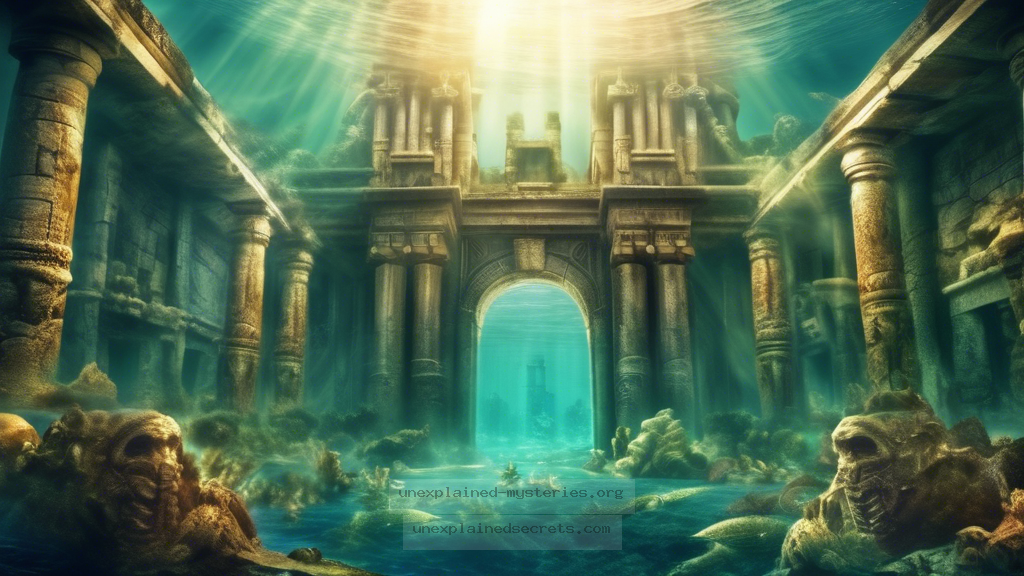What Happened to the Lost City of Atlantis: Myth or Reality?
What Happened to the Lost City of Atlantis: Myth or Reality?
The legend of Atlantis has captivated imaginations for centuries, leading many to wonder: did this advanced civilization truly exist, or is it merely a myth? The story, first recounted by the ancient Greek philosopher Plato, describes a utopian society that fell out of favor with the gods and was swallowed by the ocean. But what if there is more to the tale than poetic imagination? This question is crucial to understanding not only ancient geography and cultures but also the persistent allure of lost knowledge in human history. In this blog post, we will delve deep into the mysteries surrounding Atlantis, examining historical contexts, theories, and evidence—or lack thereof—that could shed light on this enigmatic civilization.
Historical Context of Atlantis
The tale of Atlantis originates from Plato’s dialogues, “Timaeus” and “Critias,” written around 360 BCE. Plato described Atlantis as a powerful and advanced civilization that existed about 9,000 years before his time, situated beyond the “Pillars of Hercules,” which is now known as the Strait of Gibraltar. According to Plato, the society was characterized by advanced architecture, a complex political system, and an abundance of resources. However, due to its moral decay, Atlantis fell out of favor with the gods and was ultimately submerged under the ocean, disappearing without a trace.
While Plato’s account serves as the primary source for the Atlantis legend, it is essential to consider the historical context of his writings. Plato often used allegory to convey philosophical ideas, and many scholars argue that Atlantis may have been a fictional construct to illustrate his theories on ideal societies and moral decay. However, the enduring nature of the story has led to numerous interpretations and explorations, both in historical and archaeological contexts.
Core Concepts: Theories of Existence
Over the years, several theories have emerged regarding the potential existence of Atlantis. Here are some of the most notable:
- Geological Theories: Some researchers suggest that Atlantis could have been a real place that experienced catastrophic geological events, such as volcanic eruptions or tsunamis. The island of Santorini, for example, is often cited due to its Minoan civilization, which was devastated by a volcanic eruption around 1600 BCE.
- Geographical Theories: Various locations have been proposed as the possible site of Atlantis, including the Azores, the Bahamas, and even Antarctica. Each location comes with its own set of archaeological claims and geological evidence.
- Mythological Interpretations: Some scholars argue that Atlantis is a synthesis of various ancient myths and cultures, drawing from the stories of the Minoans, Egyptians, and other ancient civilizations that fell from grace.
Practical Implications: Archaeological Evidence
Despite countless theories and expeditions, tangible archaeological evidence for the existence of Atlantis remains elusive. Researchers have scoured the Mediterranean, the Caribbean, and the depths of the ocean in search of clues. A few notable explorations include:
- Underwater Surveys: In the 2000s, underwater archaeologists explored the area around the Azores, where they found structures resembling roads and buildings. However, these findings have not been definitively linked to Atlantis.
- Crete and the Minoan Civilization: The discovery of the Minoan civilization on Crete, with its advanced architecture and society, has often been associated with the Atlantis myth. However, while the Minoans were indeed advanced, they do not fulfill all aspects of Plato’s account.
- Thera Eruption: The volcanic eruption that destroyed the island of Thera (Santorini) has been linked to the decline of the Minoan civilization and is seen by some as a potential parallel to the Atlantis story.
Alternative Perspectives: Skepticism and Critique
While the allure of Atlantis is strong, many historians and archaeologists remain skeptical about its existence. Critics argue that Plato’s account is primarily a philosophical allegory. They point to the lack of credible evidence and the numerous inconsistencies in the various theories proposed over the years. For example, the timeline of 9,000 years before Plato’s writing does not align with known historical civilizations, which complicates the argument for a real Atlantis.
Furthermore, the idea of a highly advanced civilization existing at that time raises questions about technological capabilities and cultural exchanges. Many scholars suggest that attributing advanced traits to a mythological society detracts from understanding the actual achievements of ancient civilizations, such as the Egyptians and Sumerians.
Common Misconceptions and Clarifications
Many myths and misconceptions surround the story of Atlantis, which can lead to misunderstanding its significance. Here are some common myths debunked:
- Myth 1: Atlantis was a technologically advanced civilization.
Reality: While Plato’s account suggests advanced technology, there is no concrete evidence supporting this claim. - Myth 2: Atlantis was a single geographical location.
Reality: Various theories propose multiple locations, indicating that the idea of Atlantis is likely a composite of various ancient cultures. - Myth 3: The story of Atlantis was entirely fictional.
Reality: While many elements may be allegorical, some aspects could be inspired by real events or civilizations.
Best Practices for Investigation and Study
For those interested in exploring the Atlantis mystery further, here are some best practices:
- Engage with Primary Sources: Reading Plato’s original dialogues can provide insight into his philosophical intentions and the historical context of his writings.
- Research Archaeological Findings: Stay updated on the latest archaeological discoveries in regions linked to Atlantis, such as Santorini and Crete.
- Critical Thinking: Approach theories with a critical mindset, distinguishing between speculation and evidence-based claims.
Future Developments: Ongoing Research and Theories
The quest for Atlantis continues to intrigue researchers, and ongoing studies are exploring both historical and geological evidence. Recent advancements in underwater archaeology, satellite imaging, and geological surveying could potentially yield new insights into the locations and cultures that may have inspired the Atlantis legend. Some researchers are also considering the impact of climate change on ancient coastlines, which may uncover hidden settlements that align with Plato’s descriptions.
Furthermore, the role of Atlantis in popular culture has sparked renewed interest in its study. Documentaries, books, and films continue to explore the mystery, ensuring that the legend of Atlantis remains a topic of fascination for both scholars and the public alike.
Conclusion: The Enduring Mystery of Atlantis
The question of whether Atlantis was a real civilization or merely a myth remains unresolved. While many theories have emerged, the lack of concrete evidence leaves much to speculation. Plato’s story serves not only as a historical curiosity but also as a reflection of human curiosity, ambition, and the quest for lost knowledge. As exploration and research progress, we may one day uncover more clues that could illuminate the truth behind this enigmatic civilization—or confirm its place in the realm of myth. Until then, the legend of Atlantis will continue to inspire, question, and intrigue humanity. 🌍
Other Articles
Recent Posts
- What Happened to Flight MH370? The Conspiracy Theories That Still Haunt Us
- What Secrets Lurk Within the Walls of the Infamous Trans-Allegheny Lunatic Asylum?
- What Evidence Supports the Existence of Bigfoot in the Pacific Northwest?
- What Happened to the Indus Valley Civilization? Unraveling the Mysteries of Ancient Urban Life
- Can Telepathy Be Scientifically Proven Through Laboratory Evidence?







